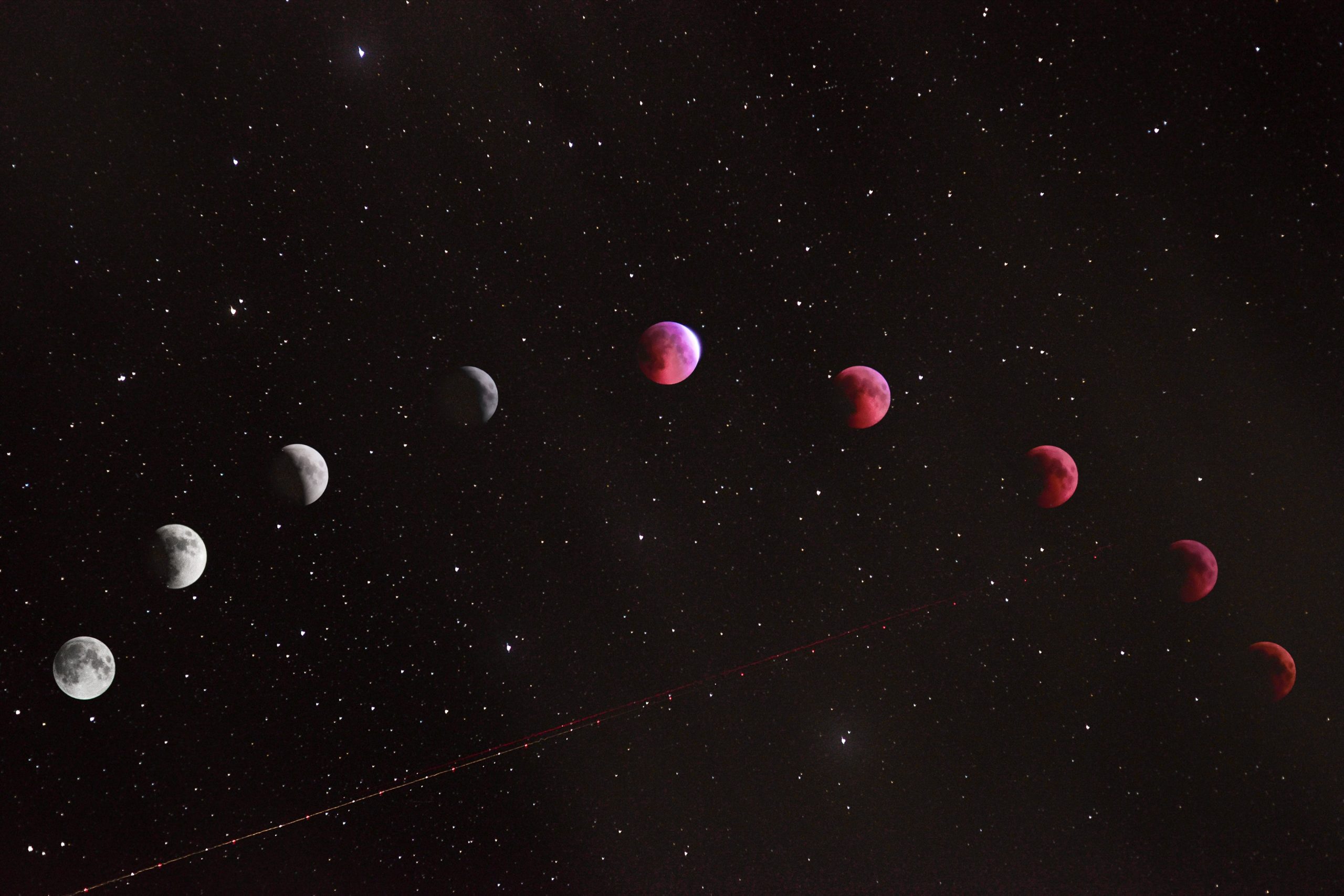What is New Moon Day and When is it Celebrated?
According to astronomy, the New Moon is the lunar phase that occurs when the Moon, in its monthly orbital motion around Earth, lies between Earth and the Sun, and is therefore invisible from Earth. New Moon Day, also known as Amavasya, is the day when the Moon is not visible from Earth. It marks the beginning of the new lunar month in the Hindu calendar and is celebrated in many parts of the world.
When does New Moon Day Occur?
New Moon Day occurs every month, usually between the 28th and 30th lunar day of the previous month. It is celebrated on different days in different parts of the world, based on the lunar calendar followed in each region. In Hinduism, it is considered an important day for performing sacred rituals and offering prayers to ancestors and deities.
Significance of New Moon Day
New Moon Day is considered a day of introspection in many cultures. It is believed that the energy of the Moon is at its lowest during this phase, making it a good time to take a break from routine activities, meditate and reflect on one’s life. It is also a time to let go of negative emotions and thought patterns and welcome new beginnings.
In some cultures, New Moon Day is associated with the goddess Kali, who is worshipped for her power to destroy negative energy and purify the mind and soul. It is said that performing special rituals and prayers to Kali on this day can help one overcome obstacles and achieve success in life.
How is New Moon Day Celebrated?
New Moon Day is celebrated in different ways in different cultures. In Hinduism, it is a time for performing sacred rituals and offering prayers to ancestors and deities. In some parts of India, people observe a day-long fast and offer food and clothes to the poor.
In astrology, New Moon Day is considered a good time for setting intentions and starting new projects. It is said that the energy of the new moon can help one manifest their desires and achieve their goals. Many people use this time to create vision boards, meditate, and journal about their intentions for the coming month.
Some people also believe that New Moon Day is a good time for releasing negative energy and letting go of things that no longer serve them. This can be done through rituals such as burning sage or palo santo, taking a salt bath, or writing down negative thoughts and emotions and then tearing up the paper.
What is New Moon Day and When is it Celebrated?
New Moon Day, otherwise known as Amavasya, is a highly significant day in the Hindu calendar that marks the end of a lunar month and the beginning of a new one. This day is highly important both astronomically and spiritually and is observed by millions of Hindus all over the world. In this article, we’ll discuss some of the most frequently asked questions about New Moon Day, and explore the significance of this day in detail.
What is the Significance of New Moon Day?
New Moon Day is a highly significant day for Hindus, as it marks the end of a lunar month and the beginning of a new one. It is believed that on this day, the moon is not visible in the sky, which marks the beginning of a new cycle. Hindus believe that the New Moon is a good time to clear old energy and make space for new beginnings.
It is also believed that the first day after the New Moon Day, known as Pratipada, is one of the most auspicious days for starting new projects, making important decisions, and beginning new chapter in life such as weddings, buying a new house or starting a business. On this day, it is believed that Lord Brahma created the universe and that He can be worshipped to seek his blessings and protection.
When is New Moon Day Celebrated?
New Moon Day falls once every lunar month in the Hindu calendar, which means that it occurs approximately once every 29-30 days. The specific date of the New Moon Day varies depending on the location and time zone, but it usually falls between the 14th and 16th day of the lunar cycle. It is important to note that the lunar month is different from the solar month, and that the dates of the New Moon Day may differ from the dates in the western calendar.
How is New Moon Day Celebrated?
New Moon Day is observed by millions of Hindus worldwide, and the celebrations may vary regionally and culturally. Traditionally, Hindus perform pujas on this day to seek blessings and protection from the deities. Many people fast on New Moon Day and abstain from eating anything during the first 24 hours of the lunar cycle. The fast is broken only after the sighting of the moon in the evening.
In some regions, it is believed that performing rituals such as lighting lamps, offering food to the deities, and making donations to the poor bring good luck and prosperity in life. Many people also use this time to meditate, reflect, and set intentions for the new lunar cycle.
What are Some of the Myths and Legends Associated with New Moon Day?
There are several myths and legends associated with the New Moon Day in Hindu mythology. One of them is the legend of the churning of the ocean, which is believed to have occurred on this day. According to the legend, the gods and demons churned the ocean to obtain the elixir of immortality.
Another popular legend associated with the New Moon Day is the story of the Mahabharata. It is believed that the Pandavas lost all their wealth and possessions on this day and were forced to go into exile for one year.
What is New Moon Day and When is it Celebrated?
New Moon day is an essential day in the Hindu calendar that holds significant spiritual importance. It is the day when the moon is not visible in the sky, which is the 15th day of the dark lunar phase. This day is celebrated across various cultures and religions across the world. The significance of this day varies with different cultures and beliefs, but it has an important place in all of them.

When is New Moon Day Celebrated?
The New Moon day of each lunar month is observed with devotion and significance. It usually occurs between the middle of two lunar months, and the duration between two New Moon days is around 29.5 days. This means that there are twelve New Moon days every year.
In Hinduism, New Moon day is known as Amavasya, and it is celebrated on the 15th day of every lunar month. In some cultures, it is considered to be an inauspicious day for starting anything new, while in others, it is an auspicious day for new beginnings.
The Significance of New Moon Day
New Moon day is considered significant in many cultures and religions. Here are a few examples of its importance:
1. Hinduism
In Hinduism, New Moon day is celebrated as Amavasya, and it is considered to be a day for offering prayers to one’s ancestors. It is believed that on this day, the departed souls of ancestors visit their descendants, and offerings are made to honour and seek their blessings. People offer food, clothes, and other items to the Brahmins, who then offer the same to the departed souls.
It is also believed that on this day, Lord Shiva and Parvati are in a state of meditation, and devotees offer prayers and seek blessings for prosperity and harmony in life.
2. Buddhism
In Buddhism, New Moon day is celebrated as Uposatha, and it is considered to be a day for observing the Eight Precepts. The Eight Precepts include abstaining from killing, stealing, sexual misconduct, lying, taking intoxicants, eating after midday, indulging in entertainment, and using luxurious beds or seats.
It is believed that observing the Eight Precepts on the New Moon day purifies one’s mind and helps in spiritual growth.
3. Paganism
In Paganism, New Moon day is considered to be a day for new beginnings and fresh starts. It is believed that on this day, the energies are renewed, and it is an auspicious time to start new projects or ventures. People often perform rituals or spells to attract positive energies and blessings.
How is New Moon Day Celebrated?
New Moon day is celebrated differently in different cultures and religions. Here are a few examples of how it is celebrated:
1. Hinduism
In Hinduism, New Moon day is celebrated by offering prayers and performing rituals for the ancestors. People prepare special dishes and offer them to the Brahmins, who then offer prayers to the ancestors.
It is also believed that observing a fast on this day helps in purifying the mind and body. People abstain from eating food and engage in spiritual practices like meditation and yoga.
2. Buddhism
In Buddhism, New Moon day is celebrated by observing the Eight Precepts. People gather at the temples and observe the precepts together. They also offer donations and perform acts of kindness and compassion.
3. Paganism
In Paganism, New Moon day is celebrated by performing rituals or spells to attract positive energies and blessings. People often light candles, burn incense or sage, and meditate to connect with the energies of the universe.
Conclusion
In conclusion, New Moon day is an essential day in various cultures and religions. It holds significant spiritual importance and is celebrated with devotion and enthusiasm. The significance of this day varies with different cultures and beliefs, but it is always an auspicious time for new beginnings and fresh starts.
It is essential to understand the significance of this day and celebrate it with respect and devotion to derive its benefits. Whether it is by offering prayers to the ancestors, observing the Eight Precepts, or performing rituals to attract positive energies, New Moon day is a day to connect with ourselves and the universe.
Table of Contents
